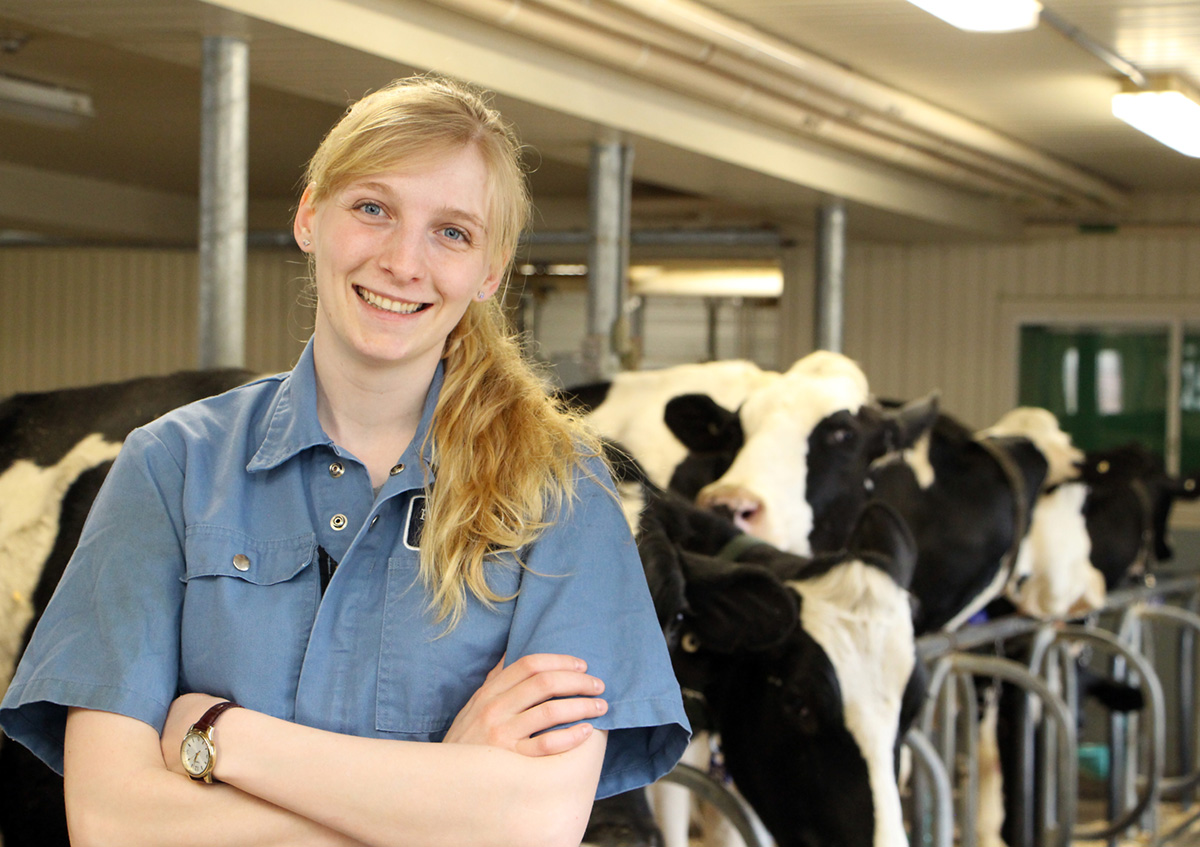
When Ontario Veterinary College student Rose Rumney went online to check her score for the North American Veterinary Licensing Examination (NAVLE), the number 800 was listed beside her name. Her first thought was, 800 out of what?
It was actually 800 out of 800 — the highest score possible. Rumney is only the fourth student to achieve the highest possible result out of the 54,000 candidates who have taken the NAVLE in the past 16 years. The NAVLE exam is required for graduates of accredited veterinary schools to become licensed in North America and internationally. The average score in 2015-16 was 513.
Veterinary medicine is in her blood, Rumney says. Her distant cousin, Jean Rumney, DVM ’39, was one of the first women to graduate from the University of Guelph’s Ontario Veterinary College (OVC). Both of Rumney’s parents are veterinarians and run a mixed-animal practice from their 100-acre farm near Midland, Ont. “I knew this was what I wanted to do from a very young age,” she says.
Both her parents studied at the University of Guelph and OVC. Rumney says the animal science and agriculture programs attracted her to U of G, as well as OVC’s international reputation. In the summer after her second year, she traveled with Global Vets to Thailand and worked in an elephant sanctuary, a wildlife centre and a dog shelter.
That trip showed her how different animals’ lives can be. “Here, our dogs and cats are valued companions; there, most of the dogs and cats are street animals,” she says. “The dog shelter had more than 500 dogs, many with zoonotic diseases, and only one veterinarian. I learned a lot experiencing a different culture and the very different relationship people have with animals there.”
While she has no favourite courses — “I like everything, I’m a generalist,” she says — Rumney does recall the one she found most challenging: an undergrad course on the philosophy of medicine that she found “exceedingly hard.” Fortunately, the questions on the NAVLE didn’t involve much philosophy.
She says she didn’t do anything in particular to prepare for the exam. “My motto throughout school has been to work hard this year to prepare for next year. Each year of school builds on the previous year, so it’s a long process of constantly building on the foundation.”
Rumney, who will graduate in June, plans to work in her parents’ veterinary practice until fall and hopes to have a long career in a general mixed-animal clinic, despite encouragement from some to consider becoming a specialist. “This is what I love to do,” says Rumney. “I know I want to live in the country and work with animals.”